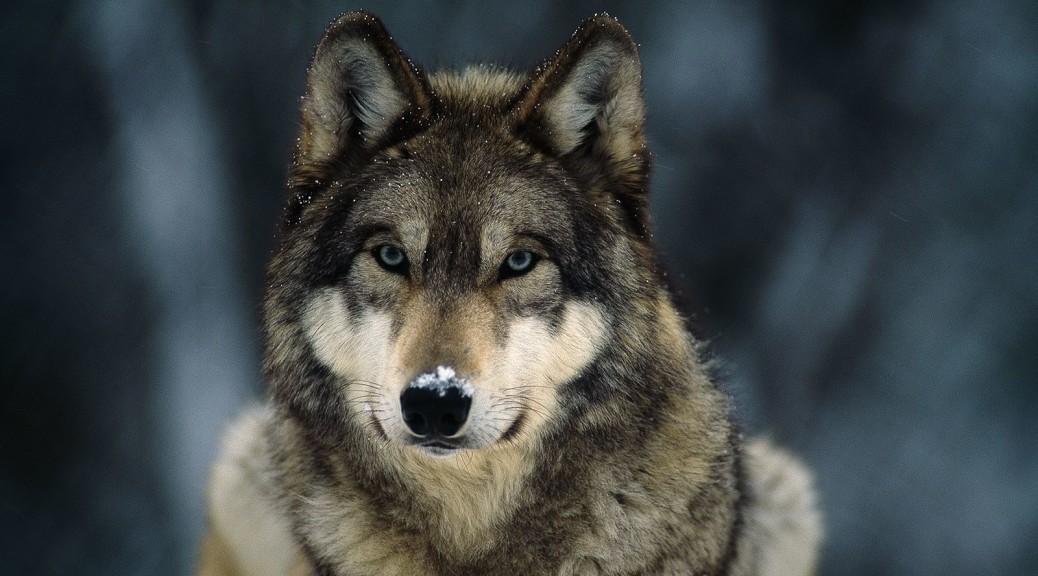More than 200 years since the last Irish wolf was shot in Co. Carlow, wolves are set to make a return to Ireland. Plans are at an advanced stage to re-introduce these magnificent creatures into Ireland. The first pack of two males and five females will be released into Killarney National Park, as part of a controlled release programme that will run for 5 years and involve the translocation of 30 animals to Ireland. The project is spearheaded by the Irish Grey Wolf Re-introduction Group and NPWS, and has the support of the IFA, Failte Ireland and Kerry County Council.
Speaking at the launch of the project in Muckross House, Prof. Canis Lupus, Chair of the IGWRG and a native of Norway said ‘he was thrilled that these majestic creatures would once again roam the Irish countryside’. This is the fourth re-introduction project in Ireland, but the first involving a mammal. ‘That the project has received such widespread support is testament to the huge support there is in Ireland for wildlife and nature conservation’, Lupus added.
The project was fast-tracked when Ireland stepped in after the Scottish Highlands wolf re-introduction programme was abandoned late last year. Despite the EU already spending £3.2 million on planning and consultancy fees, continued funding of the ‘Bring Wolves Back to Britain’ campaign, one of several re-introductions programmes planned under the Re-wilding Britain initiative, was considered too risky by the European Commission now that Britain was to push ahead with it referendum on EU membership and a potential BREXIT. A spokesman for the Commission, Mr. Carnivorous explained that ‘despite having already invested heavily in this project, the Commission has a responsibility to spend its money wisely, so now was a good time to withdraw further funding’.
Killarney National Park is considered an ideal alternative site to the Scottish Highlands as it is a similar habitat, a wilderness, it rains alot and is in State ownership. Careful habitat management will be the key to the success of the project. Wolves are shy, elusive creatures that require wide open hillsides with unobstructed views to breed successfully. The recent decision to amend the Wildlife Act to extend the season for burning of upland vegetation will provide this unique habitat. Amending the bill will overcome the final obstacle to allow NPWS pitch for the lucrative EU-funded project, set to bring in at least €5 million annually in compensation payment to farmers.
The IFA is supportive of the project as it will make good use of waste land, and provide an additional source of income through compensation for lost ewes. Mr. Paddy O’Brian, Head of IFA’s Wilderness Committee said ‘this really is a win-win situation for farmers as it will help manage our uplands in a sustainable way and provide good compensation payments. Wolves will also prey on pine marten and other vermin that are over-running the country at the moment’.
Failte Ireland has welcomed the initiative as yet another tourist attraction along the Wild Atlantic Way. Mr. Dar B. O’Gill, Head of the Failte Ireland- Kerry said ‘that the Wild Atlantic Way runs through a wild, rugged landscape, so adding the wild wolf as an additional theme can only but help to re-inforce this strong brand’. It is understood that a number of ‘Wolf Viewing Areas’ are to be established where tourists can park their cars and watch wolves in the wild. ‘Clearly there will be a significant investment needed to fence off these viewing areas, for health and safety reasons, but as it is an election year, that shouldn’t be a problem’. O’Gill added that ‘Failte Ireland is also looking at the feasibility of totally enclosing these areas to ward-off marauding seagulls who are terrorising young families, many of whom find the great outdoors a scary place’.
The European Commission has said that it will very shortly make a final decision on the total amount of funding that the project is to receive. Mr. Carnivorous said ‘that the Commission was very supportive of initiatives of this kind. After decades of EU policies the West of Ireland is fecked anyway, so leaving it to the wolves is probably the best thing we can do’.
Note from the author: This is a satirical piece on attitudes to nature conservation in Ireland. Please don’t think it is factual!
(Grey Wolf photo: kids.nationalgeographic.com)

